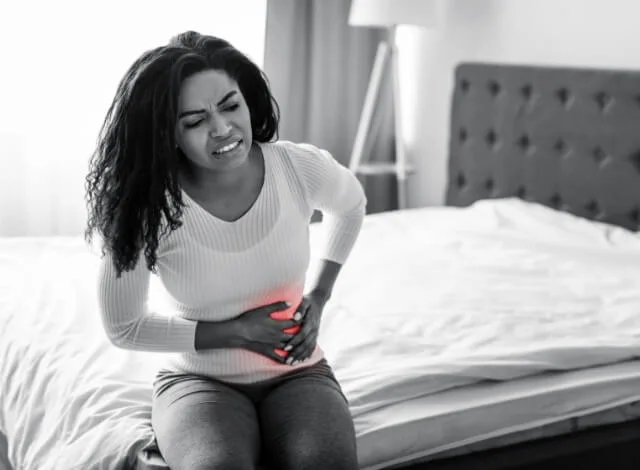What is Pelvic Inflammatory Disease? Learn about PID Symptoms, Treatment and More

Understanding pelvic health is crucial for every woman, yet some conditions remain shrouded in mystery or taboo. Pelvic Inflammatory Disease (PID) is one such condition that demands attention. In this blog, we'll delve into what PID is, its symptoms, effects on menstrual cycles, risk factors, treatments, and when to seek medical help. Crucially, we'll address a pressing question: does PID affect your period?
What is PID?
Pelvic Inflammatory Disease, commonly known as PID, is an infection of the female reproductive organs. It typically occurs when sexually transmitted bacteria spread from the vagina to the uterus, fallopian tubes, or ovaries. However, it's essential to note that PID can also develop without any sexual activity, such as when bacteria enter the reproductive organs via other means, like during childbirth or abortion.
Symptoms of PID
PID symptoms can vary from mild to severe and may include:
- Lower abdominal pain or pelvic pain
- Unusual vaginal discharge
- Painful urination
- Irregular menstrual bleeding
- Painful intercourse
- Fever and chills
- Nausea or vomiting
- Fatigue
- Painful periods (dysmenorrhea)
- Pain in the upper right abdomen (less common)
For times when your vaginal discharge feels excessive and makes you uncomfortable or hinders your daily activities, use panty liners to manage the discharge. Try the Always Multiform Protect Daily Liners . These are flexible and adaptable liners that fit all panty styles. Its breathable design offers trusted dryness for long-lasting freshness and its fresh scent keeps you feeling refreshed. Moreover, it is designed to be extra-thin (1mm) for a comfortable experience, such that you barely feel a thing.
Does PID affect your periods?
Absolutely. PID can disrupt the delicate balance of your reproductive system, impacting your vagina, uterus, ovaries, and fallopian tubes. Here are five changes or complications of pelvic inflammatory disease you may notice in your period and menstrual cycle.
Irregular periods: PID can cause irregular bleeding, making your periods shorter, longer, or heavier than usual.
Painful periods: PID may intensify menstrual cramps, leading to more discomfort during menstruation.
Changes in flow: You might experience changes in the amount of blood flow during your period, ranging from lighter to heavier bleeding.
Spotting: PID can cause spotting or bleeding between periods, which is often abnormal.
Delayed periods: If you’re wondering ‘can pelvic inflammatory disease delay period?’ then the answer is yes, it can. While some women may experience early periods due to PID, others might face delays or missed periods altogether.
It is better to stay prepared for your period, whether delayed or early. Use superior quality menstrual products which offer comfort and protection such as Always’ range of sanitary pads . They have a variant for your every mood and need. We recommend the Ultra Thin Pads , which are made using supreme quality material and design for maximum safety and upto 100% comfortable protection. Its Ultra Thin Superior Fit helps you perform your daily activities with ultimate ease and control. Furthermore, the super absorbent core with InstantDry System absorbs wetness in seconds.
Risk Factors
Several factors can increase your risk of developing PID, including:
- History of sexually transmitted infections (STIs)
- Previous episodes of PID
- Not using barrier contraceptives like condoms
- Douching
- Multiple sexual partners
- Cervical ectopy (a condition where cells from the inside of the cervix are found on the outside)

Pelvic inflammatory disease and Pregnancy
Pelvic inflammatory disease (PID) poses significant concerns during pregnancy, as it can increase the risk of complications. When PID occurs, the infection and inflammation can affect the fallopian tubes, leading to scarring and blockages. These complications may interfere with the fertilisation process, making it challenging to conceive. Additionally, if pregnancy does occur, PID can increase the risk of ectopic pregnancy, a dangerous condition where the fertilised egg implants outside the uterus, usually in the fallopian tubes.
Moreover, untreated PID can lead to chronic pelvic pain, which may persist during pregnancy and affect the expectant mother's comfort and well-being. There's also a heightened risk of preterm birth and low birth weight babies among women with a history of PID. Additionally, there's a potential for the infection to spread to the developing fetus, leading to serious complications. Therefore, it's crucial for women planning to conceive or already pregnant to seek medical attention promptly if they suspect they have PID or experience symptoms such as abdominal pain, abnormal vaginal discharge, or painful urination.
PID Treatment
Prompt treatment for PID is essential to prevent complications. Treatment typically involves a combination of antibiotics to clear the infection. It's crucial to complete the full course of antibiotics, even if symptoms improve. Additionally, your healthcare provider may recommend rest, pain relievers, and abstaining from sexual activity until the infection clears up.
Looking to track your cycle? Our ovulation calculator can help you predict your most fertile days and better understand your menstrual health.
Looking to track your cycle? Our period calculator can help you predict your most fertile days and better understand your menstrual health.
When to see a doctor?
Certain symptoms warrant immediate medical attention, such as:
- Severe abdominal or pelvic pain
- High fever (above 101°F or 38.3°C)
- Vomiting
- Fainting or dizziness
- Unusual vaginal bleeding or discharge
- Pain or difficulty during urination
Understanding pelvic inflammatory disease (PID) and its symptoms is crucial for every woman. PID symptoms like abdominal pain, unusual discharge, and irregular periods shouldn't be ignored. Early detection and treatment can prevent complications like infertility or ectopic pregnancy. Remember, your reproductive health matters, and seeking medical help when needed ensures a healthier future.
Disclaimer:
Please note the date of the last review or update on all articles. No content on this site, regardless of date, should ever be used as a substitute for direct medical advice, diagnosis or treatment from your doctor or other qualified clinician. Always is committed to ensuring that all of our products meet rigorous safety standards; Always pads prioritize safety , protection and comfort of its consumers.
FAQs










